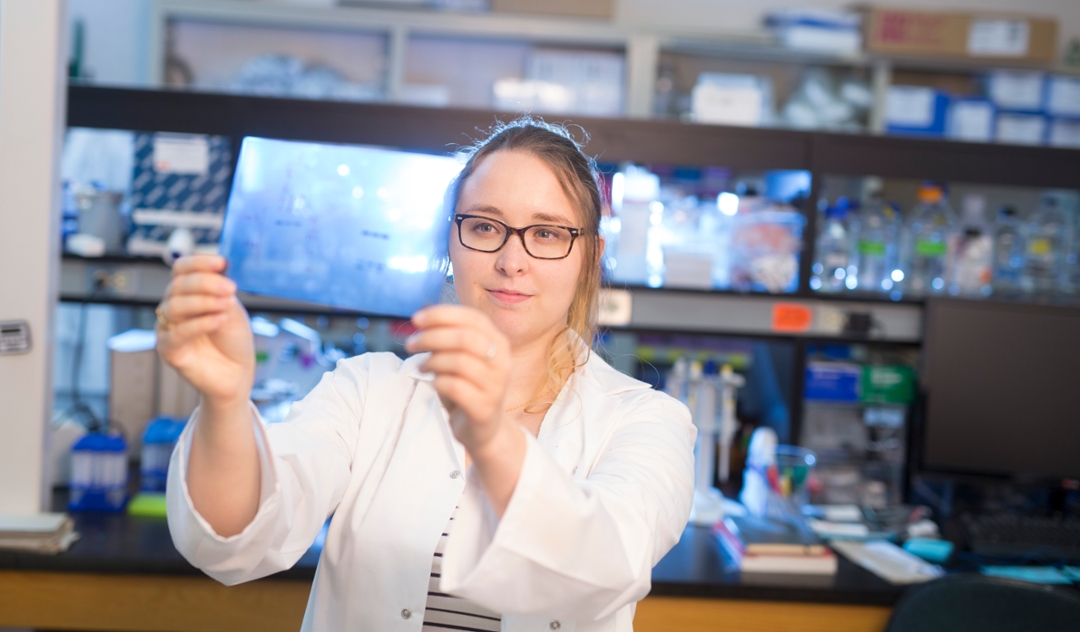
Divide and conquer
Zoe Gillespie is always looking a few years down the road, and what she sees is the chance to benefit human health through her work in nutrigenomics in the College of Agriculture and Bioresources.
By Colleen MacPhersonThe master’s student in the Department of Food and Bioproduct Science is studying the interface between genetics and nutrient-sensing pathways within cells. These pathways provide the cell with instructions on how to proceed—grow, die, divide, rest. In this case, those instructions are based on the nutrients entering the cell. By looking at how the genetic pathways respond to drugs that are known to inhibit the process, Gillespie hopes to uncover the fundamental biology behind how the pathways are influenced, knowledge that can be applied to improving the lifespan and health of cells.
“The two drugs we’re looking at are commonly used, one to treat Type 2 diabetes and the other as an immunosuppressant after organ transplant,” Gillespie explained.“They ‘trick’ the cell into believing there are fewer or no nutrients, and there are results showing positive outcomes—that the cells live longer and are healthier. If we understand how that works, we can find better ways of altering the pathways and that could have great spinoff benefits for human health.”
It is the kind of research that requires asking a lot of questions, she said, “a lot of whys, whens and hows,” but that is exactly what drew Gillespie to science in the first place.
Raised in Tunbridge Wells, U.K., southeast of London, Gillespie did a biomedical science undergrad degree at Brunel University London where she was bitten by the research bug.
“The first thing I did was grew cells in an incubator. I got to see them live, take them through experiments, look at them under a microscope. Cells are cool,” said Gillespie.
Brunel was also where she met her current supervisor, Christopher Eskiw, who was a faculty member there. Gillespie said she expressed an interest in his work and Eskiw invited her to join his lab. When he moved to the position of assistant professor of food and bioproduct science at the University of Saskatchewan (U of S) in 2013, Gillespie was offered a graduate position in Canada, and realized she had an opportunity.
“I hadn’t given any thought to coming to Canada but there was not much grad funding in the U.K. at that time,” she said. “And I looked up the U of S online. It looked beautiful, like Hogwarts. I thought it would be silly to say no.”
Gillespie will complete her master’s degree soon, and will then move into a PhD program. It will be similar work with nutrient-sensing pathways but she will be focusing on Hutchinson Gilford Progeria Syndrome, a premature aging disease.
Despite the fact it is a long way home to visit family, Gillespie is content to continue to pursue her passion in Saskatoon.
“When you do research, you’re always going to be able to learn new things. That’s what I like to do.”

